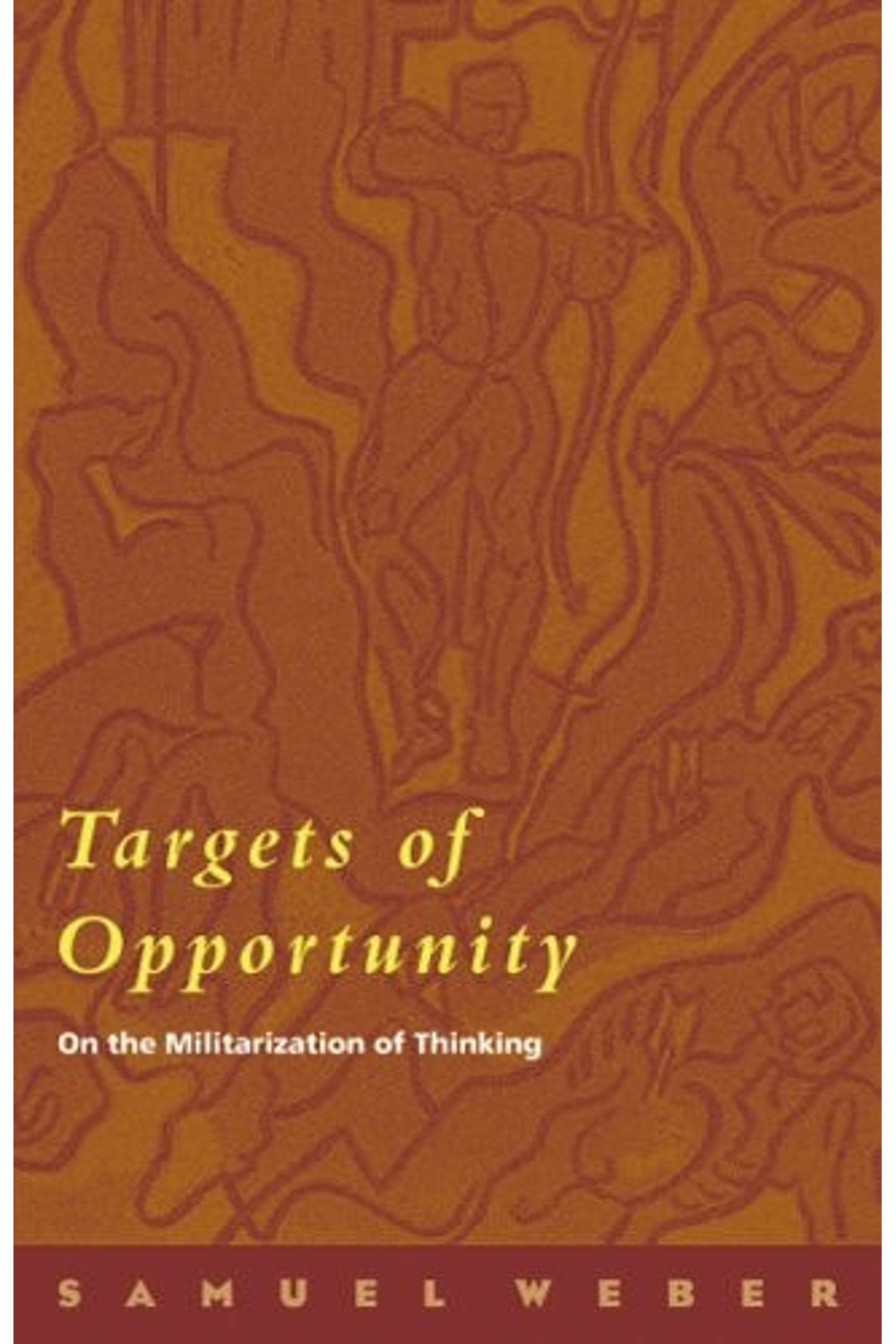Samuel Weber’s *Targets of Opportunity: On the Militarization of Thinking* (Fordham University Press, 2005) examines how the concept of “targeting” shapes not just warfare, but also our thinking and culture. Weber dissects the inherent logic of targeting, exploring its roots in ancient literature with Homer’s *Odyssey* and its modern manifestations in political theory via Carl Schmitt, psychoanalysis with Sigmund Freud, and contemporary military strategy, including Network Centered Warfare. He analyzes how the desire to secure invulnerability through destruction fuels cycles of violence. Looking at Walter Benjamin’s work, the book also considers alternatives to this pervasive mindset, urging readers to envision possibilities beyond a “militarized” approach to problem-solving. This 164-page paperback, relevant to philosophy, psychoanalysis, and media studies, is a crucial exploration of power, vulnerability, and the potential for peace, by a key scholar known for his work on deconstruction and media theory. The book provides a lens to challenge how we perceive conflicts in the 21st century and consider more peaceful and fair approaches.
Targets of Opportunity: On the Militarization of Thinking
19,73 $
In stock
The title of this book echoes a phrase used by the Washington Post to describe
the American attempt to kill Saddam Hussein at the start of the war against
Iraq. Its theme is the notion of targeting (skopos) as the name of an intentional
structure in which the subject tries to confirm its invulnerability by aiming to
destroy a target. At the center of the first chapter is Odysseuss killing of the suitors;
the second concerns Carl Schmitts Roman Catholicism and Political Form; the
third and fourth treat Freuds Thoughts for the Times on War and Death and
The Man Moses and Monotheistic Religion. Weber then traces the emergence
of an alternative to targeting, first within military and strategic thinking itself
(Network Centered Warfare), and then in Walter Benjamins readings of
Capitalism as Religion and Two Poems of Friedrich Hlderlin.
| Authors | |
|---|---|
| Binding | |
| Condition | |
| ISBN-10 | 0823224767 |
| ISBN-13 | 9780823224760 |
| Language | |
| Pages | 164 |
| Publisher | |
| Year published | |
| Weight | 213 |
| Edition | 1 |
- Additional information
- Currencies
- USD – United States dollar
- EUR – Euro
- GBP – Pound sterling
- CNY – Chinese yuan
- BRL – Brazilian real
- MXN – Mexican peso
- JPY – Japanese yen
- PHP – Philippine peso
- THB – Thai baht
- PLN – Polish złoty
- CAD – Canadian dollar
- MYR – Malaysian ringgit
- AUD – Australian dollar
- TWD – New Taiwan dollar
- CZK – Czech koruna
- SEK – Swedish krona
- HUF – Hungarian forint
- ILS – Israeli new shekel
- CHF – Swiss franc
- HKD – Hong Kong dollar
- DKK – Danish krone
- SGD – Singapore dollar
- NOK – Norwegian krone
- NZD – New Zealand dollar





